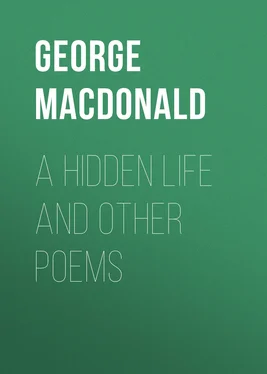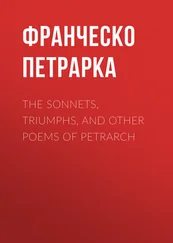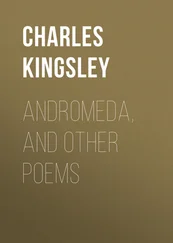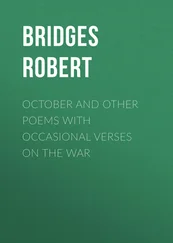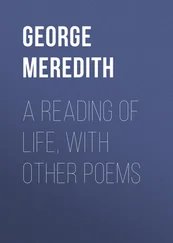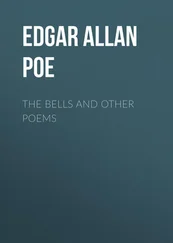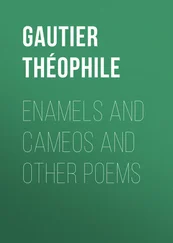George MacDonald - A Hidden Life and Other Poems
Здесь есть возможность читать онлайн «George MacDonald - A Hidden Life and Other Poems» — ознакомительный отрывок электронной книги совершенно бесплатно, а после прочтения отрывка купить полную версию. В некоторых случаях можно слушать аудио, скачать через торрент в формате fb2 и присутствует краткое содержание. Жанр: foreign_prose, literature_19, foreign_antique, на английском языке. Описание произведения, (предисловие) а так же отзывы посетителей доступны на портале библиотеки ЛибКат.
- Название:A Hidden Life and Other Poems
- Автор:
- Жанр:
- Год:неизвестен
- ISBN:нет данных
- Рейтинг книги:4 / 5. Голосов: 1
-
Избранное:Добавить в избранное
- Отзывы:
-
Ваша оценка:
- 80
- 1
- 2
- 3
- 4
- 5
A Hidden Life and Other Poems: краткое содержание, описание и аннотация
Предлагаем к чтению аннотацию, описание, краткое содержание или предисловие (зависит от того, что написал сам автор книги «A Hidden Life and Other Poems»). Если вы не нашли необходимую информацию о книге — напишите в комментариях, мы постараемся отыскать её.
A Hidden Life and Other Poems — читать онлайн ознакомительный отрывок
Ниже представлен текст книги, разбитый по страницам. Система сохранения места последней прочитанной страницы, позволяет с удобством читать онлайн бесплатно книгу «A Hidden Life and Other Poems», без необходимости каждый раз заново искать на чём Вы остановились. Поставьте закладку, и сможете в любой момент перейти на страницу, на которой закончили чтение.
Интервал:
Закладка:
And if increased familiarity
With open forms of ill, not to be shunned
Where youths of all kinds meet, endangered there
A mind more willing to be pure than most—
Oft when the broad rich humour of a jest,
Did, with its breezy force, make radiant way
For pestilential vapours following—
Arose within his sudden silent mind,
The maiden face that smiled and blushed on him;
That lady face, insphered beyond his earth,
Yet visible to him as any star
That shines unwavering. I cannot tell
In words the tenderness that glowed across
His bosom—burned it clean in will and thought;
"Shall that sweet face be blown by laughter rude
Out of the soul where it has deigned to come,
But will not stay what maidens may not hear?"
He almost wept for shame, that those two thoughts
Should ever look each other in the face,
Meeting in his house. Thus he made to her,
For love, an offering of purity.
And if the homage that he sometimes found,
New to the country lad, conveyed in smiles,
Assents, and silent listenings when he spoke,
Threatened yet more his life's simplicity;
An antidote of nature ever came,
Even nature's self. For, in the summer months,
His former haunts and boyhood's circumstance
Received him back within old influences.
And he, too noble to despise the past,
Too proud to be ashamed of manhood's toil,
Too wise to fancy that a gulf lay wide
Betwixt the labouring hand and thinking brain,
Or that a workman was no gentleman,
Because a workman, clothed himself again
In his old garments, took the hoe or spade,
Or sowing sheet, or covered in the grain,
Smoothing with harrows what the plough had ridged.
With ever fresher joy he hailed the fields,
Returning still with larger powers of sight:
Each time he knew them better than before,
And yet their sweetest aspect was the old.
His labour kept him true to life and fact,
Casting out worldly judgments, false desires,
And vain distinctions. Ever, at his toil,
New thoughts arose; which, when still night awoke,
He ever sought, like stars, with instruments;
By science, or by wise philosophy,
Bridging the gulf between them and the known;
And thus preparing for the coming months,
When in the time of snow, old Scotland's sons
Reap wisdom in the silence of the year.
His sire was proud of him; and, most of all,
Because his learning did not make him proud.
A wise man builds not much upon his lore.
The neighbours asked what he would make his son.
"I'll make a man of him," the old man said;
"And for the rest, just what he likes himself.
But as he is my only son, I think
He'll keep the old farm joined to the old name;
And I shall go to the churchyard content,
Leaving my name amongst my fellow men,
As safe, thank God, as if I bore it still."
But sons are older than their sires full oft
In the new world that cometh after this.
So four years long his life went to and fro
Betwixt the scarlet gown and rough blue coat;
The garret study and the wide-floored barn;
The wintry city, and the sunny fields.
In each his quiet mind was well content,
Because he was himself, where'er he was.
Not in one channel flowed his seeking thoughts;
To no profession did he ardent turn:
He knew his father's wish—it was his own.
"Why should a man," he said, "when knowledge grows,
Leave therefore the old patriarchal life,
And seek distinction in the noise of men?"
And yet he turned his face on every side;
Went with the doctors to the lecture-room,
And saw the inner form of man laid bare;
Went with the chymists, where the skilful hand,
Revering laws higher than Nature's self,
Makes Nature do again, before our eyes,
And in a moment, what, in many years,
And in the veil of vastness and lone deeps,
She laboureth at alway, then best content
When man inquires into her secret ways;
Yea, turned his asking eye on every source
Whence knowledge floweth for the hearts of men,
Kneeling at some, and drinking freely there.
And at the end, when he had gained the right
To sit with covered head before the rank
Of black-gowned senators; and all these men
Were ready at a word to speed him on,
Proud of their pupil, towards any goal
Where he might fix his eye; he took his books,
What little of his gown and cap remained,
And, leaving with a sigh the ancient walls,
With the old stony crown, unchanging, grey,
Amidst the blandishments of airy Spring,
He sought for life the lone ancestral farm.
With simple gladness met him on the road
His grey-haired father, elder brother now.
Few words were spoken, little welcome said,
But much was understood on either side.
If with a less delight he brought him home
Than he that met the prodigal returned,
Yet with more confidence, more certain joy;
And with the leaning pride that old men feel
In young strong arms that draw their might from them,
He led him to the house. His sister there,
Whose kisses were not many, but whose eyes
Were full of watchfulness and hovering love,
Set him beside the fire in the old place,
And heaped the table with best country fare.
And when the night grew deep, the father rose,
And led his son (who wondered why they went,
And in the darkness made a tortuous path
Through the corn-ricks) to an old loft, above
The stable where his horses rested still.
Entering, he saw some plan-pursuing hand
Had been at work. The father, leading on
Across the floor, heaped up with waiting grain,
Opened a door. An unexpected light
Flashed on them from a cheerful lamp and fire,
That burned alone, as in a fairy tale.
And lo! a little room, white-curtained bed,
An old arm-chair, bookshelves, and writing desk,
And some old prints of deep Virgilian woods,
And one a country churchyard, on the walls.
The young man stood and spoke not. The old love
Seeking and finding incarnation new,
Drew from his heart, as from the earth the sun,
Warm tears. The good, the fatherly old man,
Honouring in his son the simple needs
Which his own bounty had begot in him,
Thus gave him loneliness for silent thought,
A simple refuge he could call his own.
He grasped his hand and shook it; said good night,
And left him glad with love. Faintly beneath,
The horses stamped and drew the lengthening chain.
Three sliding years, with gently blending change,
Went round 'mid work of hands, and brain, and heart.
He laboured as before; though when he would,
With privilege, he took from hours of toil,
When nothing pressed; and read within his room,
Or wandered through the moorland to the hills;
There stood upon the apex of the world,
With a great altar-stone of rock beneath,
And looked into the wide abyss of blue
That roofed him round; and then, with steady foot,
Descended to the world, and worthy cares.
And on the Sunday, father, daughter, son
Walked to the country church across the fields.
It was a little church, and plain, almost
To ugliness, yet lacking not a charm
To him who sat there when a little boy.
And the low mounds, with long grass waving on,
Were quite as solemn as great marble tombs.
And on the sunny afternoons, across
This well-sown field of death, when forth they came
With the last psalm still lingering in their hearts,
He looked, and wondered where the heap would rise
That rested on the arch of his dead breast.
But in the gloom and rain he turned aside,
And let the drops soak through the sinking clay—
What mattered it to him?
Интервал:
Закладка:
Похожие книги на «A Hidden Life and Other Poems»
Представляем Вашему вниманию похожие книги на «A Hidden Life and Other Poems» списком для выбора. Мы отобрали схожую по названию и смыслу литературу в надежде предоставить читателям больше вариантов отыскать новые, интересные, ещё непрочитанные произведения.
Обсуждение, отзывы о книге «A Hidden Life and Other Poems» и просто собственные мнения читателей. Оставьте ваши комментарии, напишите, что Вы думаете о произведении, его смысле или главных героях. Укажите что конкретно понравилось, а что нет, и почему Вы так считаете.
